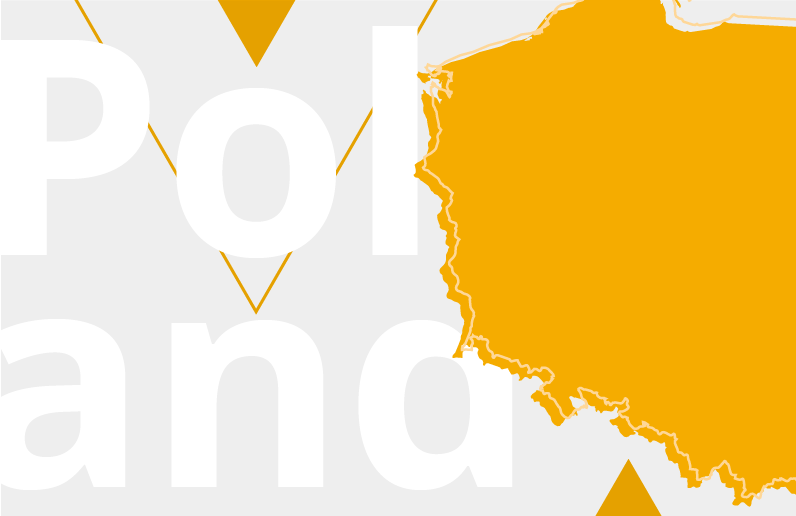Deciphering protein breakdown in neurogenerative disease
Meet new EMBO Installation Grantee Lidia Wrobel
Facts and figures, life scientists in Poland, EMBO opportunities
Meet new EMBO Installation Grantee Lidia Wrobel
Meet EMBO Scientific Exchange Grantee Monika Fajfer
An interview with Leszek Kaczmarek, professor at the Nencki Institute of Experimental Biology, EMBC President and Delegate, and EMBO Member
Meet Vanessa Linke, EMBO Postdoctoral Fellow at the International Institute of Molecular Mechanisms and Machines, Polish Academy of Sciences, Warsaw

Poland has been an EMBC Member State since 1999.
Poland has a history of pioneering education and research. The country’s oldest educational institution, Jagiellonian University in Kraków1, was founded in 1364; its largest is the University of Warsaw2. Today, there are around 350 higher education institutions, with more than 1.2 million students enrolled3. Around 44% of young adults in Poland attain a tertiary education4, and biotechnology is one of the most popular fields of study5.
In 2019, 271,000 people in Poland were involved in R&D work6. There are specialized research institutions, such as the scientific institutes of the Polish Academy of Sciences7 and Łukasiewicz Research Network institutes, which connect science and economy8. The European Patent Office granted 278 patents with first patentees residing in Poland in 20209, and the Polish Patent Office granted 2,308 patents for inventions in the country10.
Scientific research in Poland has benefited from increases in investment. Gross expenditure on research and development (GERD) more than doubled between 2005 and 2019, to 1.32%11. The main sectors financing GERD were business enterprise, providing 50.7%, and the Polish government, providing 38.8%. Public and private science spending in 2019 exceeded 6.5 billion euros.
Life scientists in Poland have access to a variety of national funding options, for example through the National Science Centre or the Foundation for Polish Science. They also receive funding through Horizon 2020 projects, European Research Council grants, and Marie Skłodowska-Curie12 Actions as well as EMBO13.
Population: 38,151,00014
R&D spending: 1.32%11
People employed in R&D: 271,0006
Foreign researchers: 2.2%15
Patents (European Patent Office): 2789
Higher Education Institutions: 34916
Higher Education enrolment: 1,215,307 students enrolled3
Horizon 2020 funding12:
2,834 organizations and 520 SMEs involved in H2020 projects
30 ERC principal investigators
425 Marie Skłodowska-Curie Actions funded researchers
All life scientists in Poland are eligible for the EMBO Programmes supporting life scientists in Europe and beyond.
Find out about all EMBO funding schemes here.
All information as of January 2022.
Meet new EMBO Installation Grantee Lidia Wrobel
Meet EMBO Scientific Exchange Grantee Monika Fajfer
An interview with Leszek Kaczmarek, professor at the Nencki Institute of Experimental Biology, EMBC President and Delegate, and EMBO Member
Meet Vanessa Linke, EMBO Postdoctoral Fellow at the International Institute of Molecular Mechanisms and Machines, Polish Academy of Sciences, Warsaw